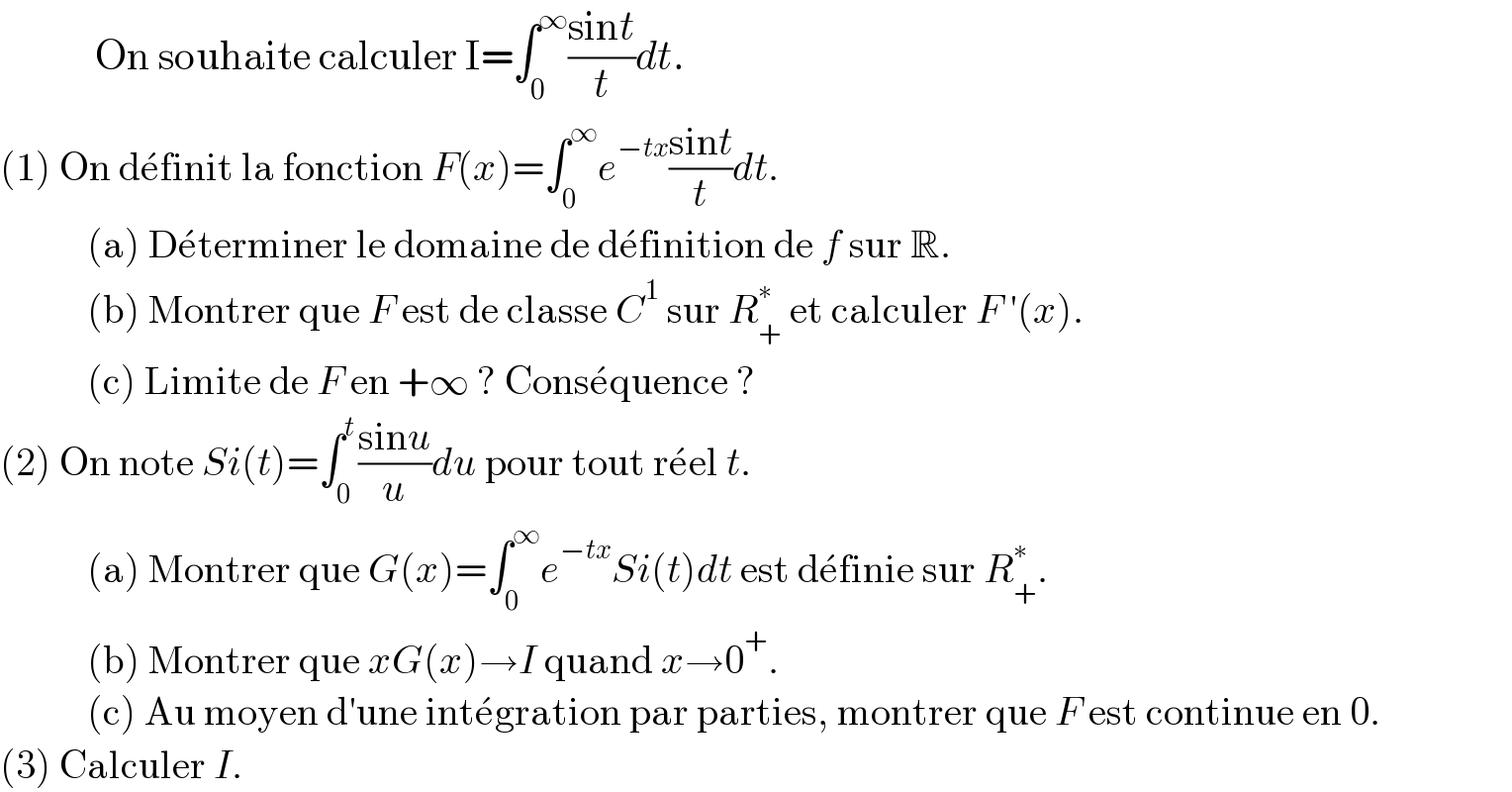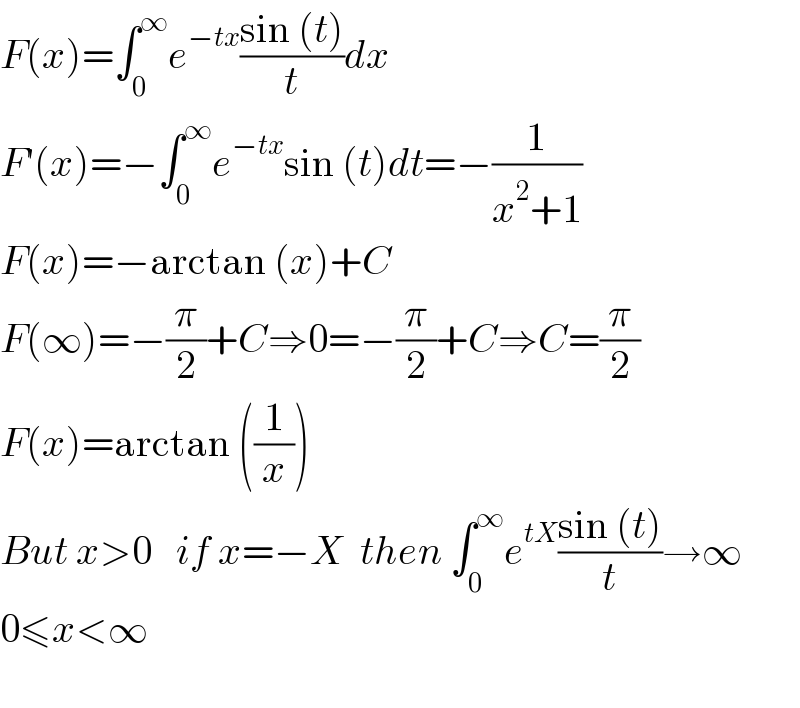
Question and Answers Forum
Question Number 144738 by Ar Brandon last updated on 28/Jun/21

Answered by Dwaipayan Shikari last updated on 28/Jun/21

Commented by Ar Brandon last updated on 02/Aug/21

| ||
Question and Answers Forum | ||
Question Number 144738 by Ar Brandon last updated on 28/Jun/21 | ||
 | ||
Answered by Dwaipayan Shikari last updated on 28/Jun/21 | ||
 | ||
| ||
Commented by Ar Brandon last updated on 02/Aug/21 | ||
 | ||